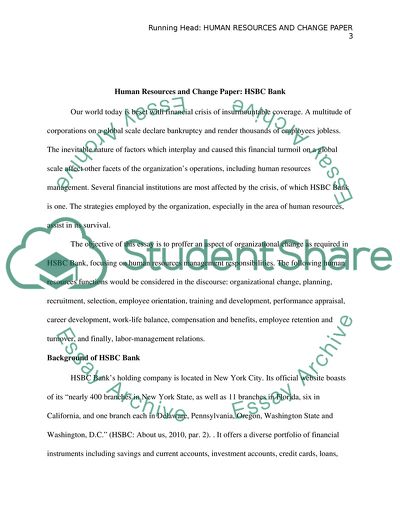Cite this document
(Crisis Problems due to which Banks Change as Required in Term Paper Example | Topics and Well Written Essays - 1500 words, n.d.)
Crisis Problems due to which Banks Change as Required in Term Paper Example | Topics and Well Written Essays - 1500 words. https://studentshare.org/finance-accounting/1736384-human-resources-and-change-paper
Crisis Problems due to which Banks Change as Required in Term Paper Example | Topics and Well Written Essays - 1500 words. https://studentshare.org/finance-accounting/1736384-human-resources-and-change-paper
(Crisis Problems Due to Which Banks Change As Required in Term Paper Example | Topics and Well Written Essays - 1500 Words)
Crisis Problems Due to Which Banks Change As Required in Term Paper Example | Topics and Well Written Essays - 1500 Words. https://studentshare.org/finance-accounting/1736384-human-resources-and-change-paper.
Crisis Problems Due to Which Banks Change As Required in Term Paper Example | Topics and Well Written Essays - 1500 Words. https://studentshare.org/finance-accounting/1736384-human-resources-and-change-paper.
“Crisis Problems Due to Which Banks Change As Required in Term Paper Example | Topics and Well Written Essays - 1500 Words”. https://studentshare.org/finance-accounting/1736384-human-resources-and-change-paper.


